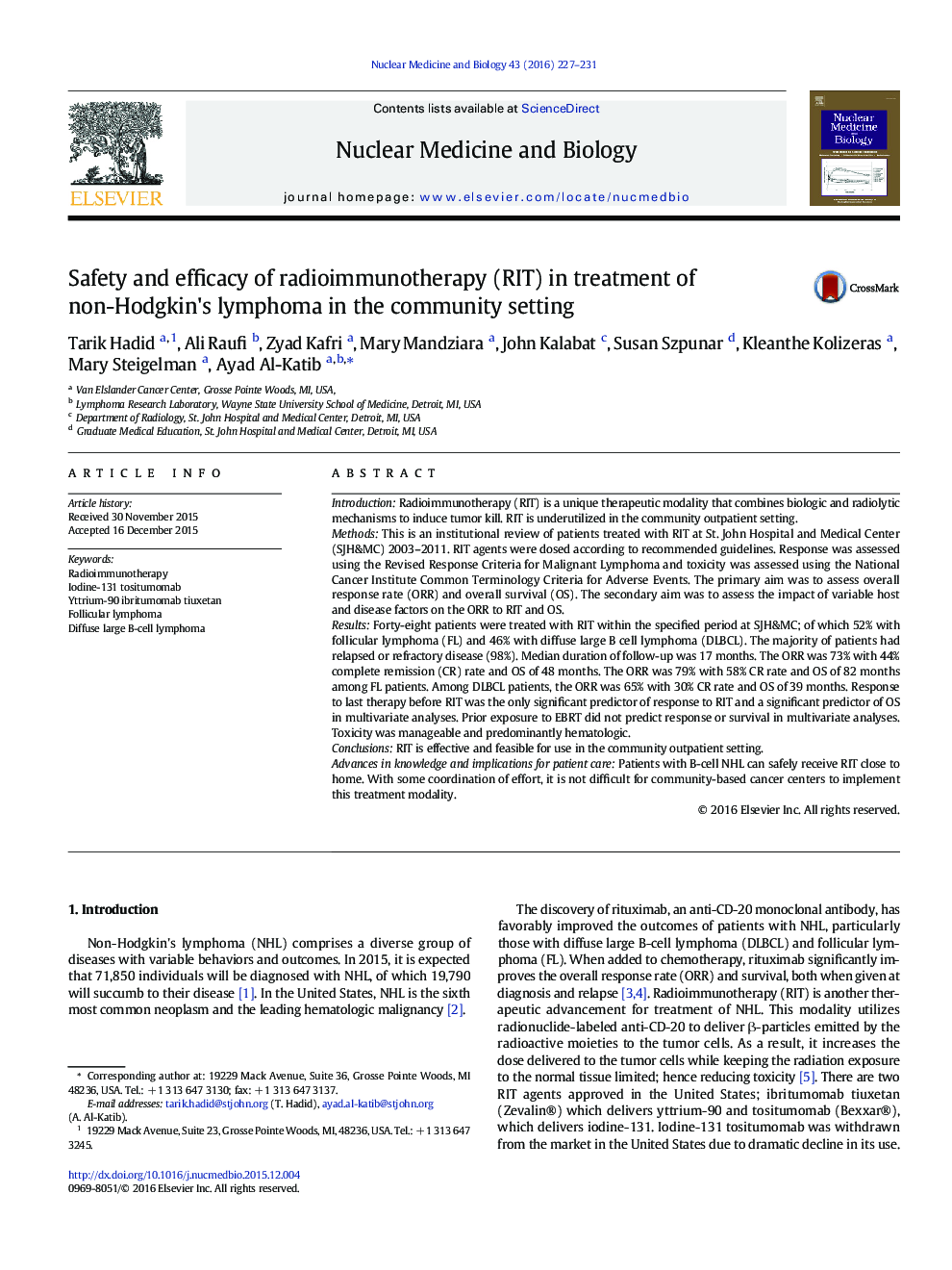| Article ID | Journal | Published Year | Pages | File Type |
|---|---|---|---|---|
| 2153312 | Nuclear Medicine and Biology | 2016 | 5 Pages |
IntroductionRadioimmunotherapy (RIT) is a unique therapeutic modality that combines biologic and radiolytic mechanisms to induce tumor kill. RIT is underutilized in the community outpatient setting.MethodsThis is an institutional review of patients treated with RIT at St. John Hospital and Medical Center (SJH&MC) 2003–2011. RIT agents were dosed according to recommended guidelines. Response was assessed using the Revised Response Criteria for Malignant Lymphoma and toxicity was assessed using the National Cancer Institute Common Terminology Criteria for Adverse Events. The primary aim was to assess overall response rate (ORR) and overall survival (OS). The secondary aim was to assess the impact of variable host and disease factors on the ORR to RIT and OS.ResultsForty-eight patients were treated with RIT within the specified period at SJH&MC; of which 52% with follicular lymphoma (FL) and 46% with diffuse large B cell lymphoma (DLBCL). The majority of patients had relapsed or refractory disease (98%). Median duration of follow-up was 17 months. The ORR was 73% with 44% complete remission (CR) rate and OS of 48 months. The ORR was 79% with 58% CR rate and OS of 82 months among FL patients. Among DLBCL patients, the ORR was 65% with 30% CR rate and OS of 39 months. Response to last therapy before RIT was the only significant predictor of response to RIT and a significant predictor of OS in multivariate analyses. Prior exposure to EBRT did not predict response or survival in multivariate analyses. Toxicity was manageable and predominantly hematologic.ConclusionsRIT is effective and feasible for use in the community outpatient setting.Advances in knowledge and implications for patient carePatients with B-cell NHL can safely receive RIT close to home. With some coordination of effort, it is not difficult for community-based cancer centers to implement this treatment modality.
